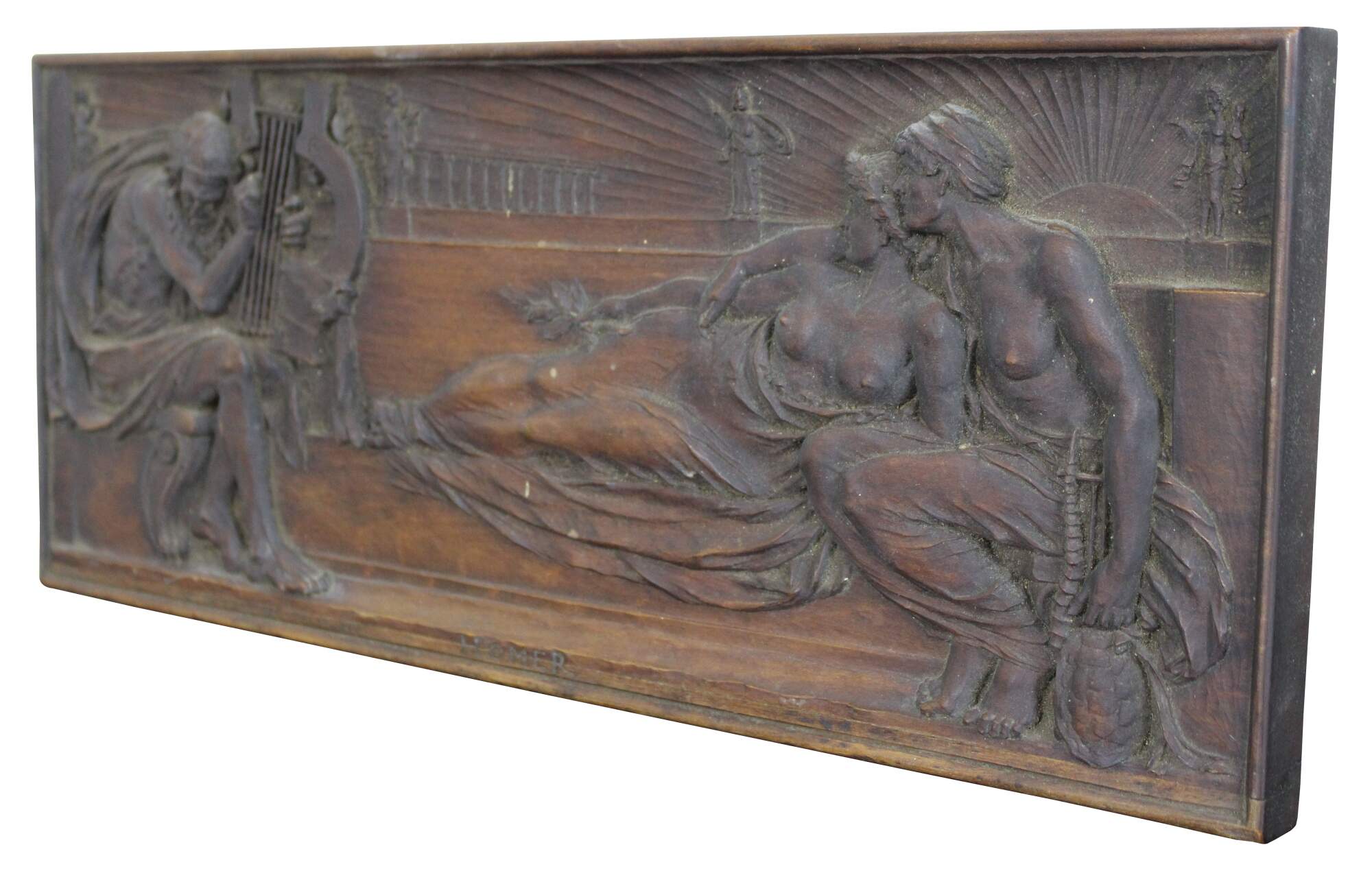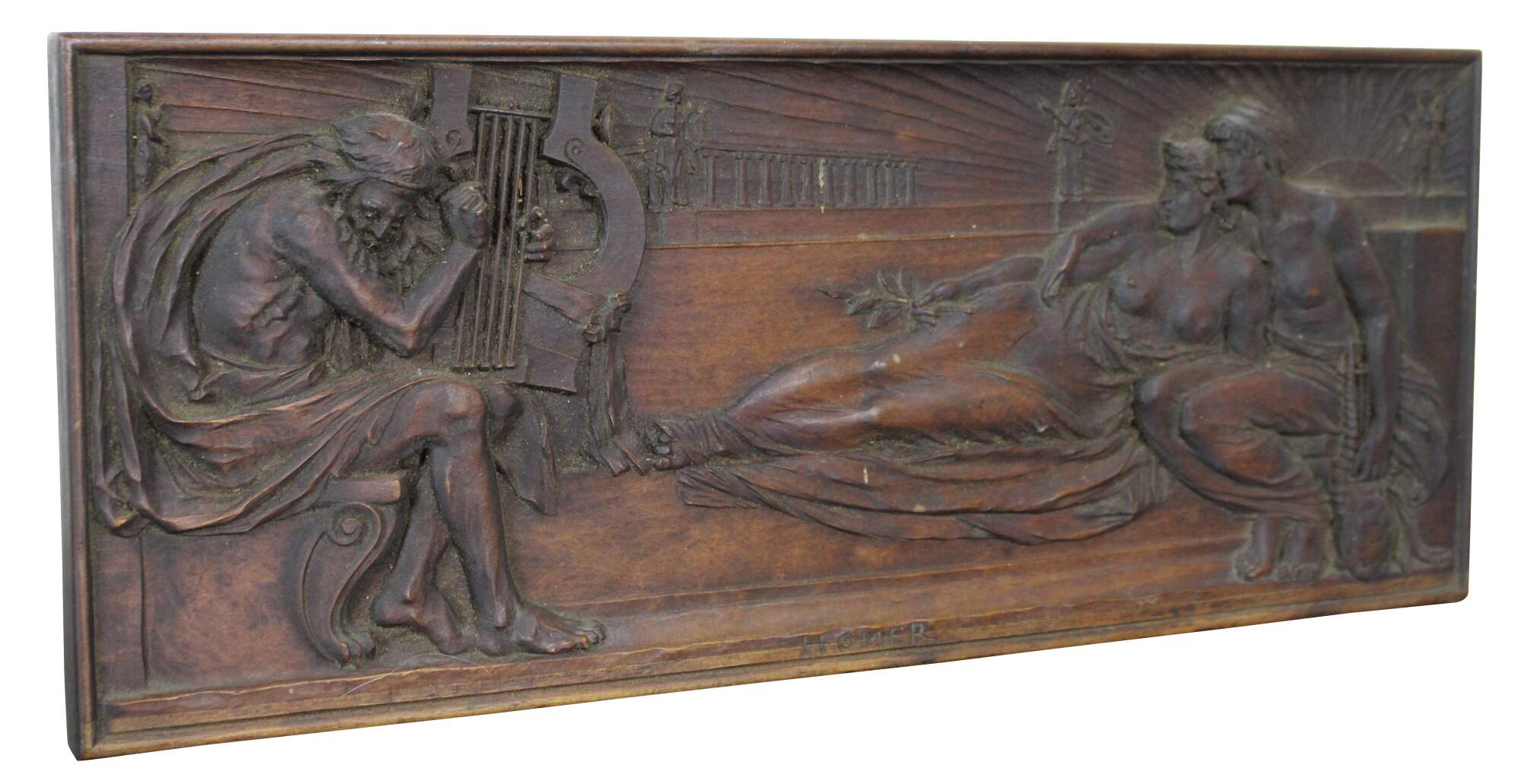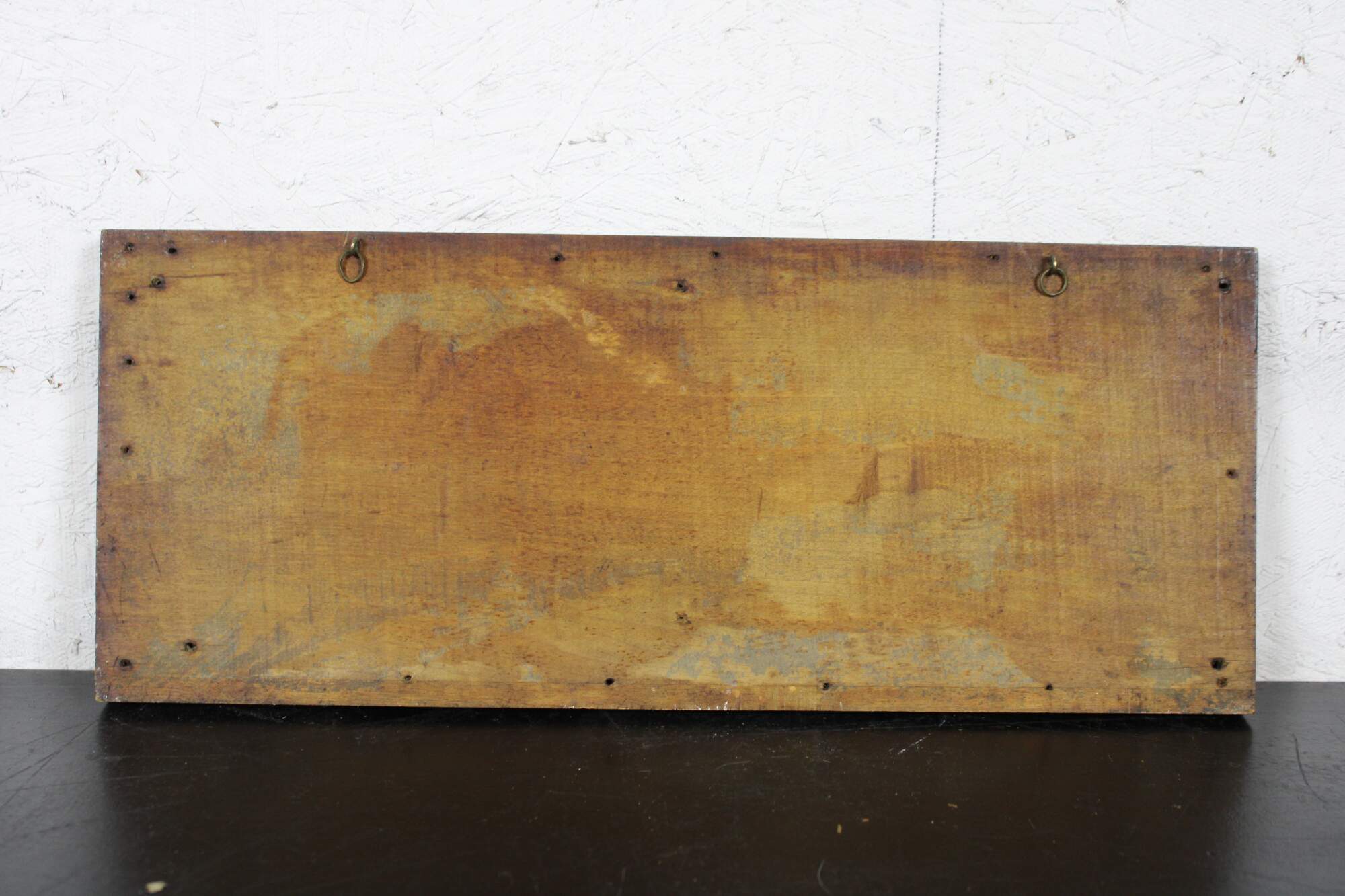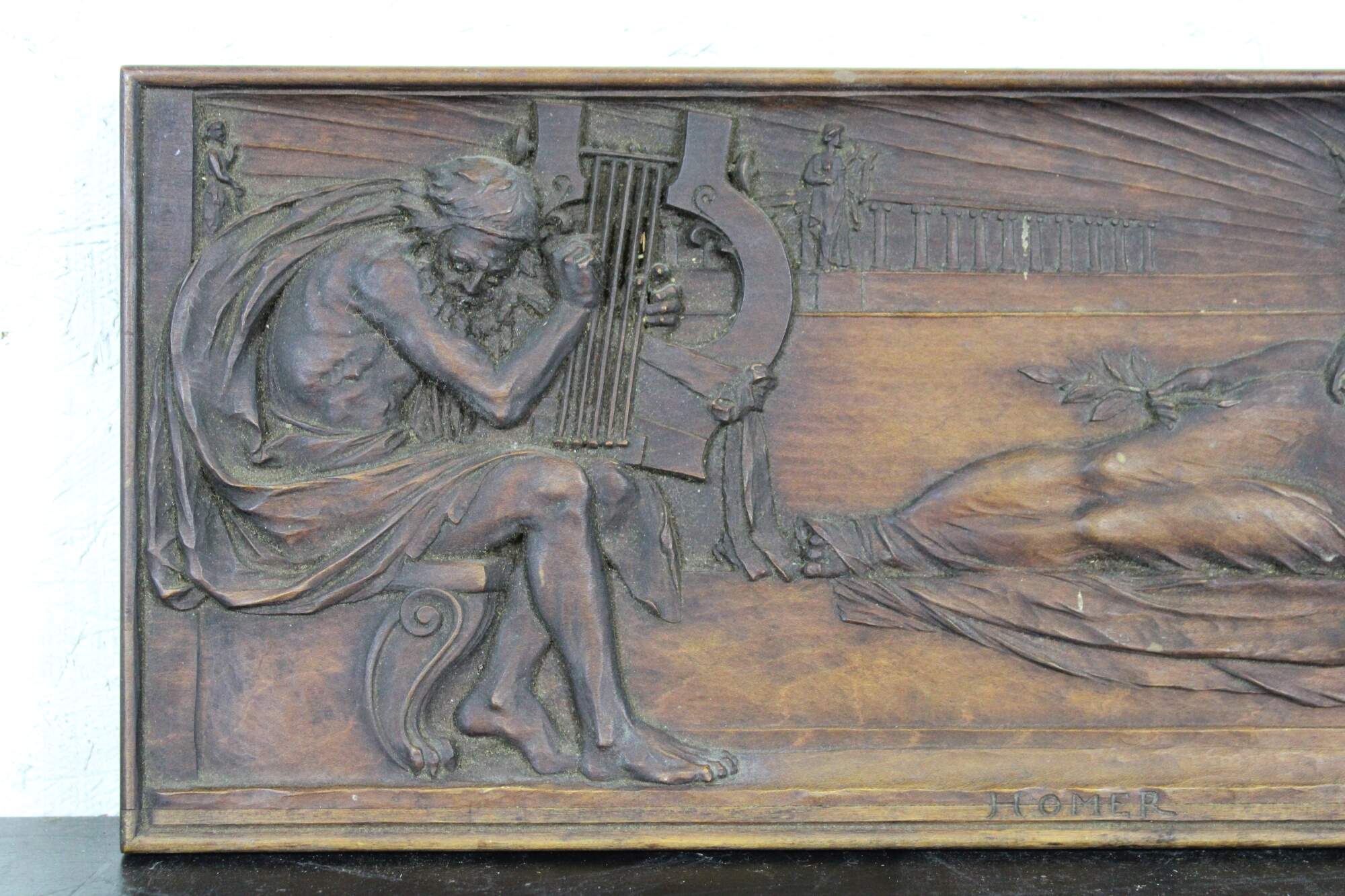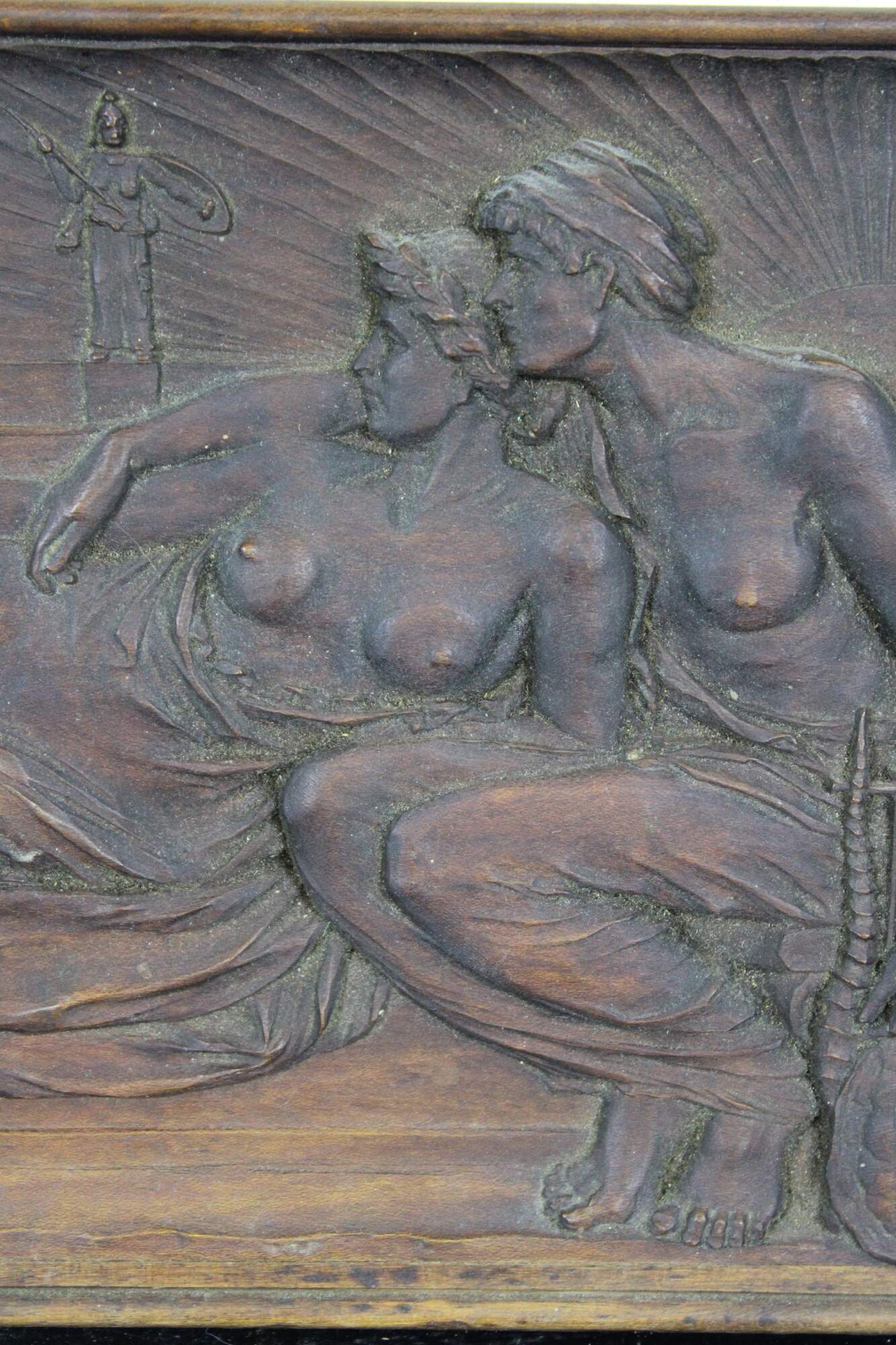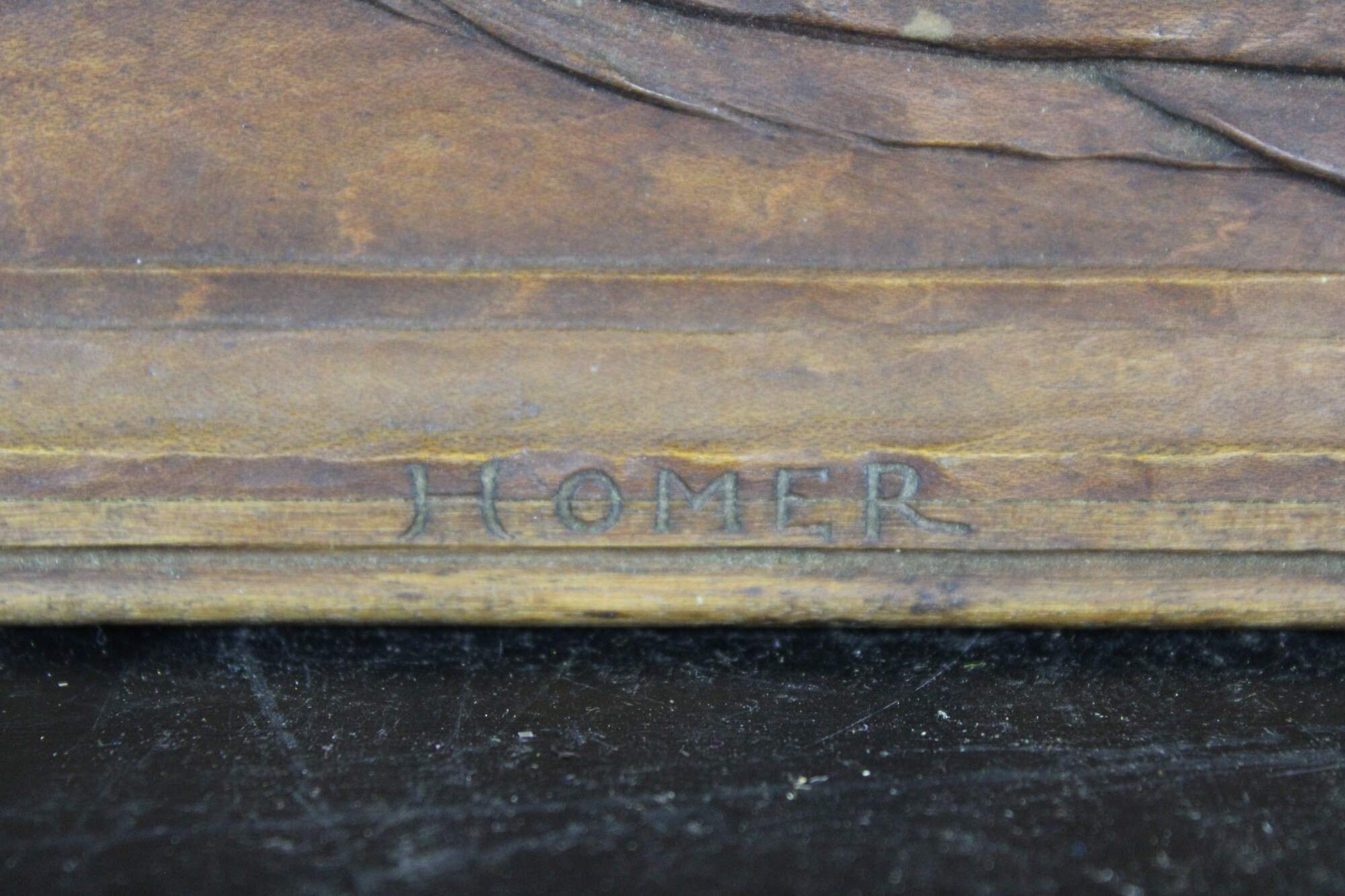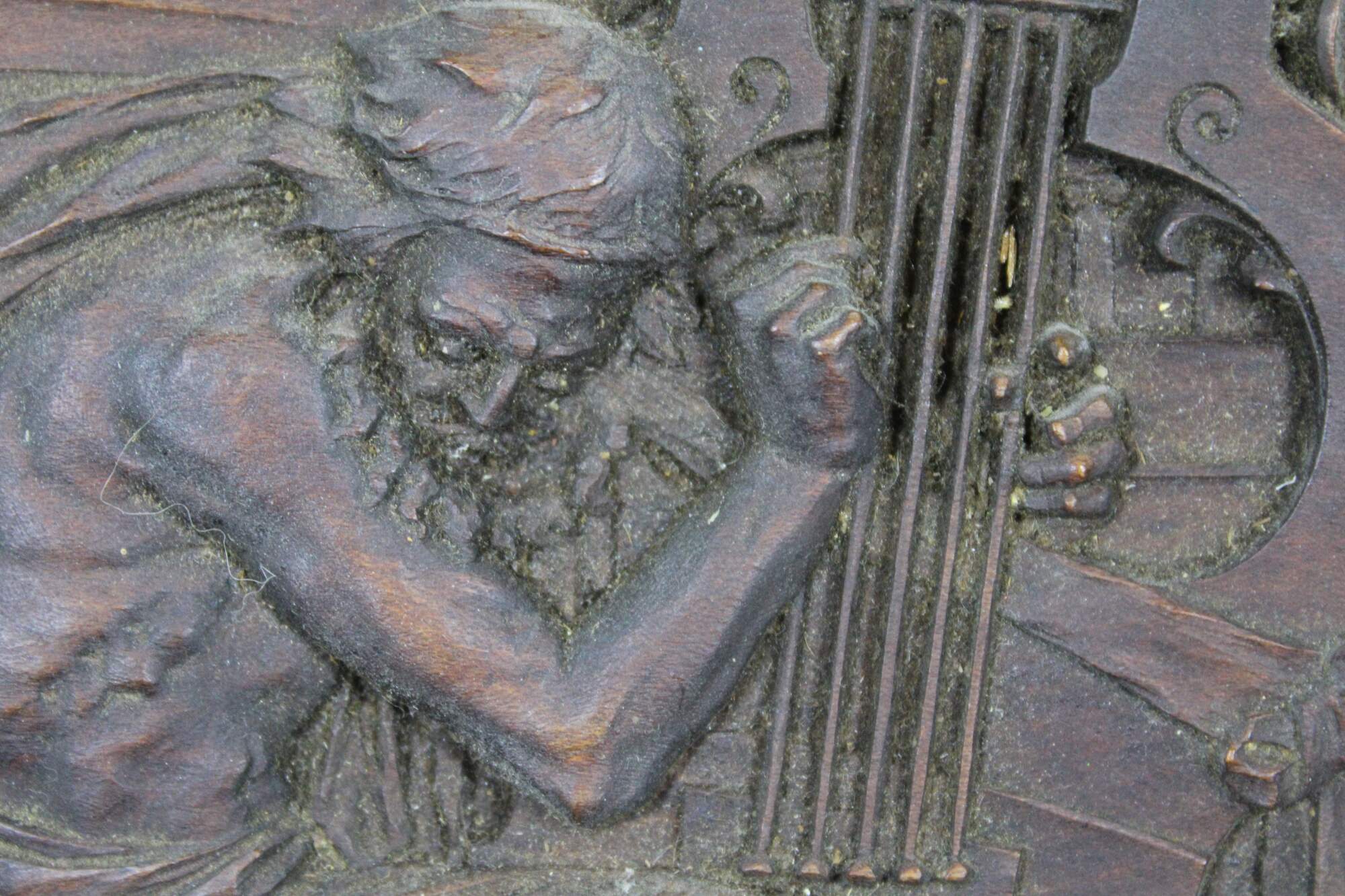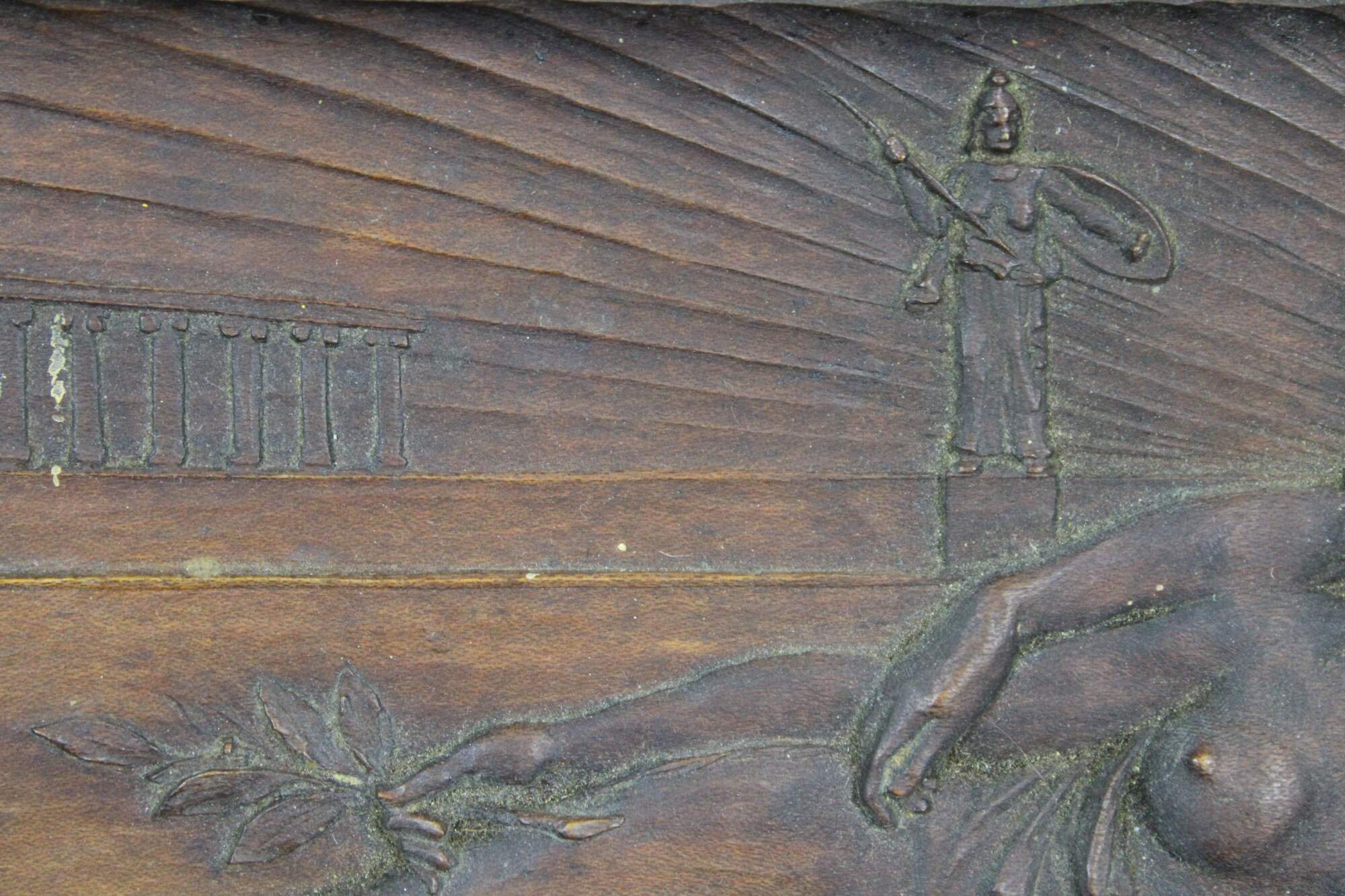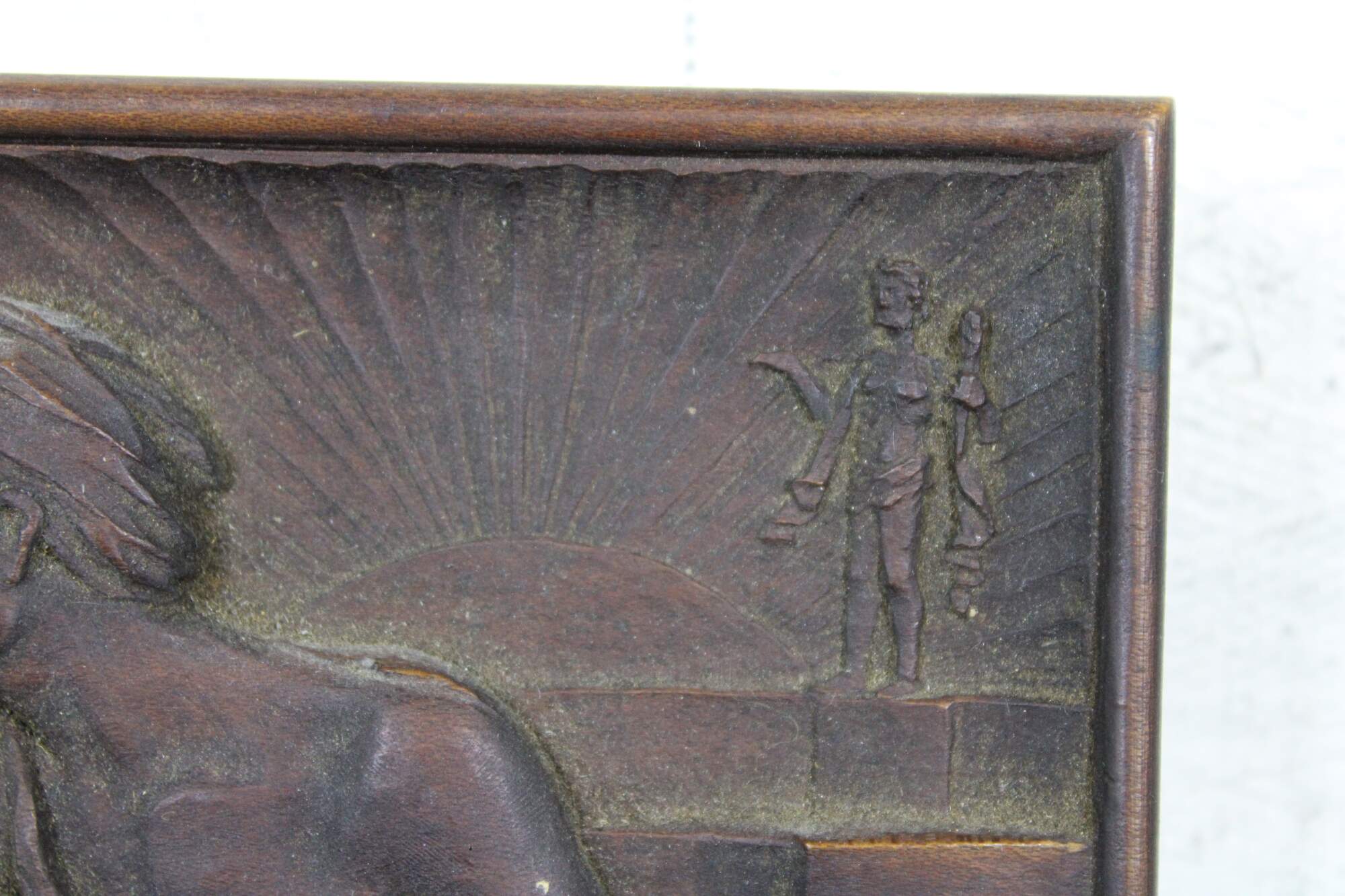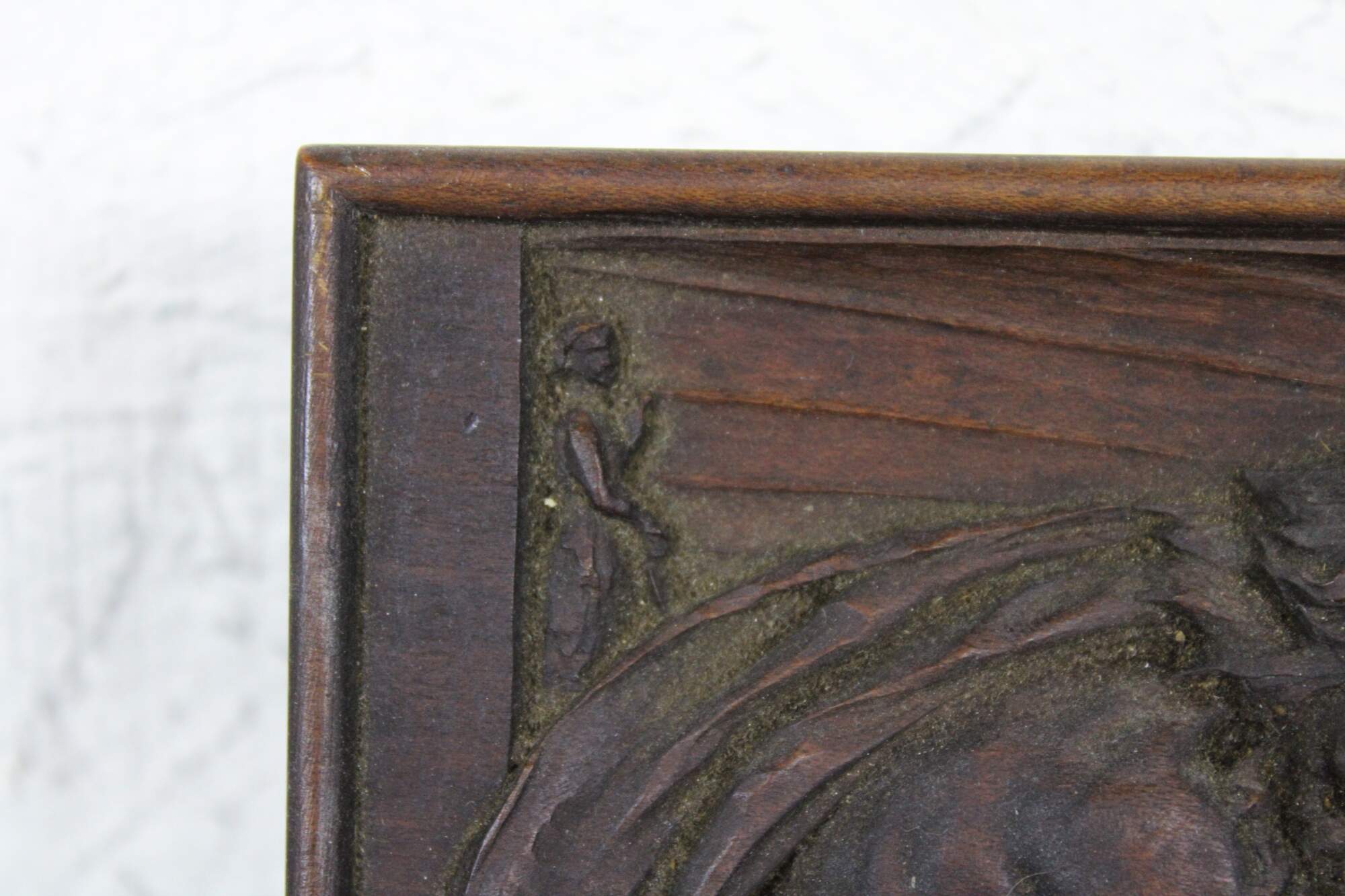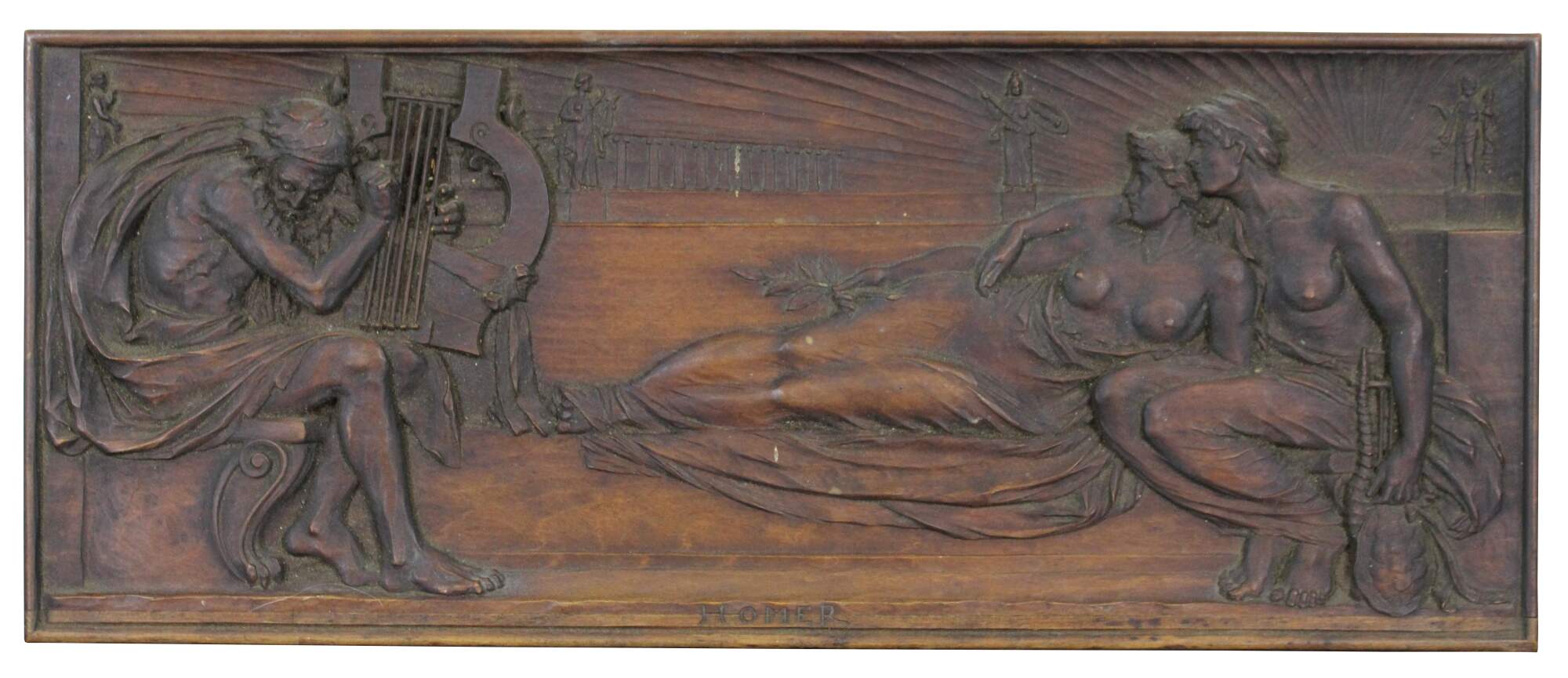
Rare Antique Neoclassical Carved Wood Bas Low Relief Homer Harry Bates Plaque
$2,800.00
Shipping:
Free Shipping Included
Delivery:
Estimated 2-15 Business Days
Payments:
Credit Card, Check, Cash, PayPal, Apple Pay, Venmo
Returns:
30 Days 100% Money Back Guarantee, Buyer Pays Return Shipping
Description
Rare antique carved wood reproduction of a clay relief sculpture by Harry Bates, depicting the Greek poet Homer, playing the lyre for two Muses. “The famed Greek epic poet Homer is said to have flourished around 700 B.C. Credited to him are the Greek epics, The Iliad and The Odyssey. The Greeks often portrayed Homer as blind. Blindness was also symbolic of inner vision. Harry Bates (1850 –1899) was a British sculptor. He was elected to the Royal Academy in 1892 as A.R.A. and was an active, if intermittent, member of the Art Workers Guild. He was a central figure in the British movement known as New Sculpture”
""Homer'"" — ""a blind old man and poor, sweetest he sings'"" — which forms our fourth illustration. The composition of the latter is exceedingly beauti- fid, and the treatment decorative, refined, and of rare spiritual quality. The hand of the blind bard sweejis the strings of his lyre in an ecstasy of inspiration which is communicated to the eager listeners, whose rapture, though intense, is subdued, and the unity of the composition, apart from the disposition of the figures, is admirably preserved” by the emotional expression. The pathetic figure of Homer is a truly intellectual conception of the poetic spirit, thrilling with jmssion and fire the liowed, infirm body of the minstrel. Recalling the spurious classicism of the past, it is in such work as this, so purely stylistio, yet in the best sense of the word so unconventional in treatment, that our present assurances in the advance of English sculpture, and our not less certain expectations of its future, possess a visible and vital foundation.
Condition
Good Overall - Gentle wear
Dimensions
18.5” x 1” x 7.5” (Width x Depth x Height)
